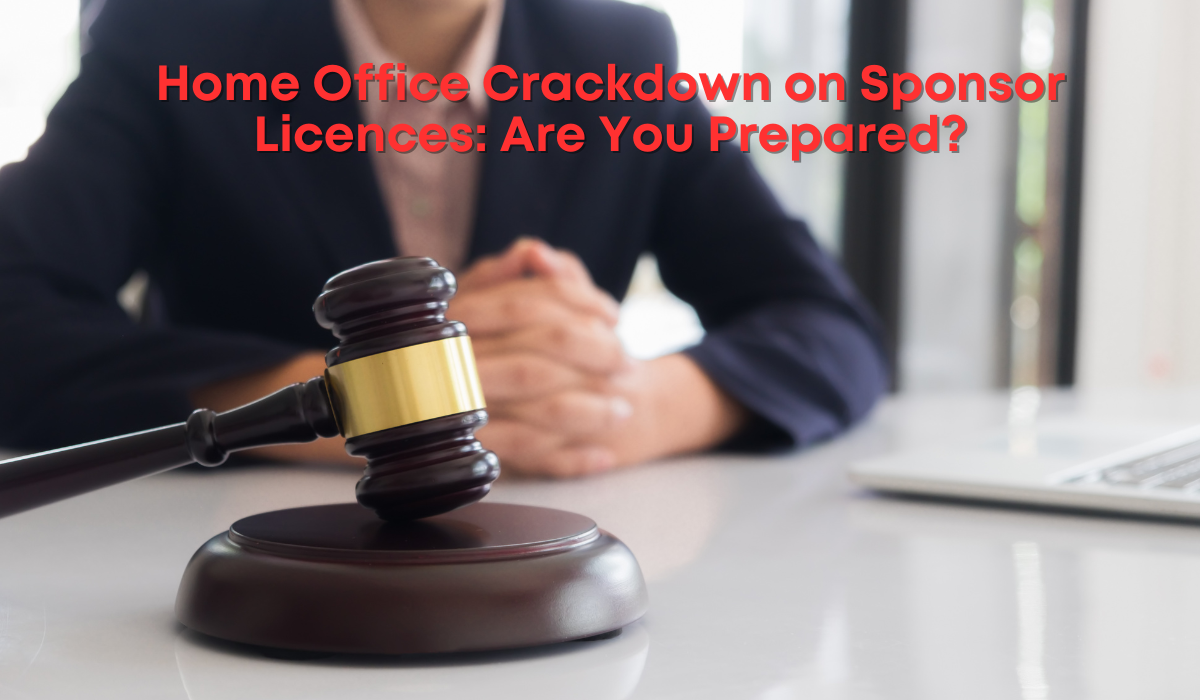In a significant announcement at the end of November, the Home Office revealed plans to intensify its enforcement of immigration laws and sponsor licence compliance. The proposed changes emphasize the government’s commitment to addressing breaches of immigration rules and curbing worker exploitation. While the modifications may not drastically shift the current compliance framework, they underscore a tougher stance against non-compliance.
As businesses grapple with these changes, it is essential to understand the implications and prepare proactively to safeguard sponsor licences and ensure compliance.
A Closer Look at the Proposed Changes
The Home Office’s announcement encompasses several key reforms, aimed at strengthening compliance and enforcement. Below are the main proposals:
1. Longer Cooling-Off Periods for Revoked Sponsor Licences
Currently, employers face a 12-month “cooling-off period” before reapplying for a sponsor licence following revocation. Under the new framework, this period could extend to 2 years for repeat or serious breaches.
Migration Minister Seema Malhotra articulated the rationale:
“The current penalties for breaking visa rules are too weak… That is why we will be introducing longer cooling off periods for businesses that repeatedly flout these rules or commit serious immigration breaches.”
This change signals the Home Office’s intent to prevent persistent offenders from re-entering the sponsor system too soon.
2. Extended Action Plans for Compliance
Currently, businesses downgraded to a ‘B’ rating after minor compliance breaches must complete an action plan within 3 months. The proposed changes will extend this period to 12 months.
While this may offer sponsors more time to address compliance issues, it also imposes prolonged restrictions, such as the inability to assign Certificates of Sponsorship to new workers during the action plan period. Employers must weigh the impact of these extended timelines on their workforce planning.
3. Ban on Passing Sponsorship Costs to Workers
The new measures will explicitly prohibit businesses from passing the costs of sponsorship—such as Certificates of Sponsorship, sponsor licence fees, or associated administrative expenses—onto workers.
This rule reinforces existing provisions under the Immigration Rules and sponsor guidance, which already penalize sponsors attempting to recoup charges like the Immigration Skills Charge from employees.
4. Integration of Immigration and Employment Compliance
In a progressive move, the government plans to align immigration compliance with employment law enforcement. The Fair Work Agency, proposed under the forthcoming Employment Rights Bill, will consolidate state enforcement functions, including National Minimum Wage compliance and regulations on employment agencies.
Although sponsor duties already require adherence to employment laws, this integration could lead to stricter cross-checks between immigration and employment law violations.
What Does This Mean for Employers?
The message from the Home Office is clear: compliance is non-negotiable. These changes come on the back of increased fines introduced in February 2024 for employing illegal workers. Recent statistics also highlight a rise in compliance visits and licence revocations.
For employers, this means that proactive compliance measures are essential. Neglecting sponsor duties or failing to align with immigration laws could lead to severe penalties, loss of sponsorship privileges, and reputational damage.
Steps to Safeguard Sponsor Licences
To navigate these evolving requirements, employers should consider the following strategies:
- Regular Audits: Conduct self-audits to ensure compliance with sponsor duties, including record-keeping and reporting.
- Training and Awareness: Educate HR staff and managers on immigration laws and sponsor obligations.
- Policy Reviews: Update internal policies to reflect changes in sponsor licence guidance and align with employment law standards.
- Documentation: Maintain accurate records of sponsored employees, including employment terms, visa documentation, and right-to-work checks.
- Engagement with Experts: Consult business immigration specialists to audit practices and provide tailored advice.
Preparing for the Future
While the proposed changes may seem incremental, they represent a broader trend towards stricter enforcement. Employers must not only ensure compliance but also demonstrate a commitment to ethical recruitment and worker protection.
The Home Office’s announcement also serves as a reminder of the interconnectedness between immigration and employment laws. Businesses must align their practices to comply with both, fostering a culture of compliance that can withstand scrutiny.
Proactive steps such as arranging immigration audits and engaging with updated sponsor guidance can make a significant difference. For more information, consult resources like the Guide to Record Keeping and Compliance or seek advice from specialists in business immigration.
Final Thoughts
The government’s heightened focus on sponsor compliance is not just about penalties—it reflects a broader societal expectation for businesses to act responsibly. The implications of these changes reach beyond immigration, touching on the fundamental principles of fair work and lawful employment.
As we move forward, businesses must rise to the challenge, not just to safeguard their sponsor licences but to contribute to a fairer, more compliant workforce ecosystem.
For specialist guidance on sponsor licensing, compliance, or preparing for Home Office checks, contact our expert immigration team today.
Get in touch: For a comprehensive understanding of your options or queries on UK immigration matters, contact GigaLegal Solicitors at 02074067654 or click here to book a no-obligation consultation with an immigration expert.


